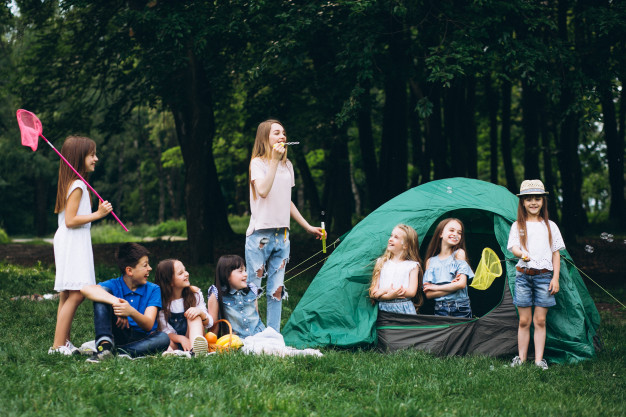
A School Camp at SVM!
Dear Parent
A School camp is a place of active learning that occurs on many levels, a residential summer camp as a unique learning environment. Children who find it difficult to learn in another setting will often succeed at camp. Learning at camp occurs in three areas—personal, social and physical—with strong carryover into school studies.
At a residential camp children are responsible for their own space and know that others depend on them to carry out certain duties. This type of experience starts to change a child’s whole self-concept and their sense of who they are and what they can do. As we applaud good marks, camp acknowledges and rewards a broader range of accomplishments. It creates an environment where every child can feel valued for their contribution. Camp is very fulfilling on a personal level as well.
Personal growth also comes through being away from parents and the security of home. It is important for kids to be away from their parents and family in an independent atmosphere.
Camps breaks down barriers that kids often put up between each other. At a camp you work as a team. It builds social capital. Social bonds between campers are often deep and lasting. “Lifelong friendships are made at camp. Supportive networks are created that continue throughout life for some.
Kids quickly become aware of their physical prowess and their ability to challenge themselves in various ways, this self-confidence transfers to other areas of a child’s life. Camps can create many curriculum-related learning opportunities, whether it’s earth science, music, theatre, physics, art or math. The camp classroom is effective because it is situated learning. What they are learning becomes real for kids and they never forget it.”
“Camp has been one of the most significant experiences of my children’s lives,” says Linda Cameron, associate professor in the Curriculum, Teaching and Learning department at the Ontario Institute for Studies in Education. Summer camp shaped the lives of her now-adult children and she sees its powerful potential to affect, in a positive way, the lives of many children.
A residential camp provides opportunities for children to adapt and grow social and emotionally. They can learn in a safe and caring environment how to cope with separation and operate successfully without depending on their parents. Children need the chance to interact spontaneously with their peers, so that they can develop socially and creatively and learn to problem-solve. Children need nature for their health and the development of their senses. Residential camp is one way to alleviate this “nature deficit.”
At camp, children can discover for themselves the world around them. A camp gives children different experiences beyond their day-to-day lives. It helps them ask new questions and develop wonderful ideas.
We at SVM see camp as an effective teaching environment because learning is enjoyable there. When people look at camp, they see fun. But that is not what camp is only about. What’s really important, and the value of the experience, is what children learn.
Campers learn not only about themselves, but also about relating and interacting successfully with their peers. They become self-reliant and, at the same time, learn to work as part of a team and where the learners learn to BE MORE…
